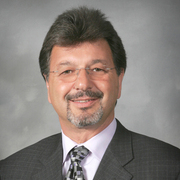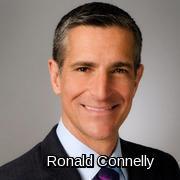HHS Urged to Resolve Pending Medicare Appeals in Filed Suit

- Casa Colina Hospital and Centers for Healthcare recently filed suit to require timely Medicare patient care appeals mandated under federal law.

The Medicare program is denying payment for hundreds of thousands of claims for services.
Most of these claims denials are invalid, according to Casa Colina’s experience with past appeals.
The suit, which requests the Department of Health and Human Services (HHS) to address pending appeals, has continued for a couple of years – such is especially problematic, as healthcare providers are supposed to only face a 90-day wait period.
Casa Colina claims being dangerously deprived of necessary funding as the painful payment waiting game continues onward with the damaging ripple effect now trickling down to the quality of care being delivered.
A lack of timely action for the consideration of Medicare patient care appeals means the quality of care for some Medicare beneficiaries receive will weaken.
"The lengthy delay in addressing our appeals could threaten our ability to serve the rehabilitation needs of Medicare beneficiaries in California," stated Felice Loverso, PhD, President and CEO of Casa Colina Hospital and Centers for Healthcare, within a press release.
"With this suit, Casa Colina intends to hold Medicare to the rules established by Congress," Loverso added.
Both Loverso and Ronald Connelly, Principal at Powers Sutter & Verville, PC, recently spoke with RevCycleIntelligence.com to explain how filing such a suit affects claims denial and revenue cycle, especially in terms of needed action on behalf of the Department of Health and Human Services (HHS) and The Centers for Medicare & Medicaid Services (CMS).
The following is part 1 of a two-part discussion.
RevCycleIntelligence.com: Can you provide an overview of where Casa Colina stands in light of your filing suit last May to require HHS to resolve Medicare appeals within 90 days, as mandated by law?
Felice Loverso: We're a referral-based hospital. A physician from another hospital or a payer will refer a patient to Casa Colina.
We go through a very arduous process of a specific preadmission screening to make sure patients meet all of Medicare's minimum guidelines for inclusion.
We reject as many patients as we accept because they don't meet criteria for rehabilitation, don't fit within diagnostic groups, or lack the strength or ability to participate in 3 hours of daily therapy a day.
We're not just a speck of dust on the screen. We're treating 10,700 people a year with debilitating diseases. We want to continue treating Medicare beneficiaries.
RevCycleIntelligence.com: You've been dealing with resolving pending Medicare appeals for 2 years. What are the greatest financial challenges for your revenue cycle?
Loverso: Casa Colina is sitting on $1.1 million in reserves, which is a tremendous amount of money in our world. Each appeal costs us about $6,000 to $7,000 on top of the $1.1 million in reserves.
If the federal government says they want us to pull some medical record charts to audit, we gladly and willingly comply, spending thousands of dollars preparing the charts and sending them off.
Then after that, we might be denied 100 percent of our reimbursement based on either a technical denial, such as the missing signature of one person in a patient’s chart, or for a medical necessity, such as when a non-clinical person (auditor) determines that a patient who’s already been discharged home from Casa Colina for 8 months and living a functional life, could have been treated in a nursing home setting at a lower cost. We're then denied reimbursement.
RevCycleIntelligence.com: What does the general timeframe look like?
Loverso: HHS is mandated to hear every case to completion within 90 days of filing an appeal with an administrative law judge.
Now we're being told we might have to wait more than 2 to 3 years for a case to be heard by a judge. I find it to be absolutely outrageous.
If we behaved that way on the service delivery side, meaning being noncompliant to this level, we would simply lose the case.
I firmly believe Medicare should be held to the scrutiny of the criteria they establish themselves, and complete reviews within 90 days.
That allows us to keep our revenue cycles going and anticipate for the future. Right now, I just have to reserve more dollars as we go forward.
Also, independent auditors are rewarded for any denied claims - they're actually given a piece of the reward or the denial - which is unbelievable and a conflict beyond belief.
We're running a 4 percent margin in our rehabilitation hospital. It's barely squeaking by. We cannot afford, after providing services that physicians and payers approved for us to render, to be non-consistently second-guessed 8 months later.
RevCycleIntelligence.com: As you kind of continue the waiting game, do you expect that you're going to get these millions of dollars back?
Loverso: I believe we'll get about 90 to 94 percent of it back. I believe that as an industry in rehabilitation, we're at about an 88 percent return rate.
 Ronald Connelly: Some industry groups have done internal queries of rehabilitation hospitals nationwide, and the reversal rate – the rate denials overturned in favor of rehab hospitals – is 88 percent.
Ronald Connelly: Some industry groups have done internal queries of rehabilitation hospitals nationwide, and the reversal rate – the rate denials overturned in favor of rehab hospitals – is 88 percent.
It's a very high win rate for the rehabilitation hospitals and really vindicates them and supports the services that they have provided, and I think makes a statement about the poor quality of the audits and the auditors.
RevCycleIntelligence.com: What causes such an extensive backlog? Where does CMS stand in relation to this?
Connelly: Too many appeals are coming in for the resources that the government has allocated to decide the appeals. The biggest source of audit activity is Recovery Audit Contractors, who are paid a percentage of everything that they recover for the government.
That's a program that Congress mandated, but CMS has implemented it in such a way that they have permitted these auditors to audit vast quantities of claims, resulting in an inevitable flood of appeals, as not only rehab hospitals, but other providers around the country have disputed the auditors' findings and have availed themselves of the right to appeal within the system.
Once those appeals get into the system, there has not been a corresponding increase in funding to decide the appeals. CMS has argued in other cases that this is really a problem not of their making and is beyond their control because Congress controls funding for federal agencies and has not increased funding.
That is correct to a point but ignores the fact that CMS controls the inflow of cases because it administers the Recovery Audit Contractor program.
CMS could institute greater controls on these audit contractors to ensure that the volume of appeals coming in matches the resources that the Office of Medicare Hearings and Appeals has to adjudicate the cases.
And, of course, CMS also could be a little more forceful in its funding requests. If you're going to impose these audits, you ought to provide the resources to decide the appeals.
